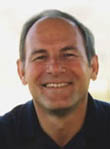|
Today
Noon
Yoga Club
Class with Inna Belogolovsky
Bldg. 70-191
6:30 p.m.
Physics Department
Segre Lecture: The Assassin of Relativity
Peter Galison, Harvard U.
Pimentel Hall (campus)
Tomorrow
8:30 to 10:15 a.m.
Human Resources
New Employee Orientation
Bldg. 50 Auditorium
10 a.m.
EHS 62
Worksmart Ergonomics
Bldg. 70A-3377
10:15 a.m.
EHS10
Intro to EH&S at Berkeley Lab
Bldg. 50 Auditorium
Noon
Environmental Energy Technologies
International Comparison in Electricity Tariffs
Sunghan Jo, Andong National U., Korea
Bldg. 90-3122
1:15 p.m.
EHS 735/739/738
Bloodborne Pathogens/Biosafety Training
Bldg. 70A-3377
3 p.m.
EHS 730
Medical/Biohazardous Waste
Bldg. 70A-3377
4 p.m.
Life Sciences & Genomics Divisions
Histone Replacement and Epigenetics
Steve Henikoff, Fred Hutchinson Cancer Research Center
Bldg. 66 Auditorium |
|
 |
|
|
 |
|
| |
Morning Editions: Denver Omelette with Hash Browns and Toast
Tomorrow's Breakfast:
Bacon, Egg, and Cheese Sandwich with Roasted Potatoes
Market
Carvery: Baked Ziti with Side Salad and Garlic Bread
The
Fresh Grille: Grilled Ham and Cheese with Fries and Coleslaw
Menutainment: Chicken Dijon with Mashed Potatoes and Vegetables
|
B'fast: |
6:30
a.m. - 9:30 a.m. |
| Lunch: |
11
a.m. - 1:30 p.m. |
Full
menu
 |
|
|
|
 |
|
|
 |
DOE-Funded Projects
Win 41 R&D 100 Awards
Secretary of Energy Samuel Bodman congratulated researchers at 12 DOE national laboratories who won 41 of the 100 awards given by R&D Magazine this year. The awards are presented in recognition of the most outstanding technology developments with commercial potential. Full story. Berkeley Lab won four of the awards.

|
 |
|
 |
|
 |

Bacteria Shows Possible
Life on Other Planets
By David Perlman
Researchers descending more than two miles into the hot, fractured rocks of a South African gold mine have discovered clans of microbes that have thrived there in total isolation for millions of years. Their quest, the scientists say, reveals more clearly than ever how life can exist in the most extreme environments imaginable: beneath the surface of Mars, perhaps, or on almost any other planet in the galaxy. Berkeley Lab earth scientist Terry Hazen was a co-author of the report on this discovery. Full story. The Joint Genome Institute performed the sequencing of the microbes.

Microsoft Looks Within
To Design, Test Chips
By John Markoff
|
|
|
|
 |
 |
|
|
| Patterson |
|
|
|
For more than two decades, Microsoft's software and Intel's processors were so wedded that the pairing came to be known as Wintel. But as that computing era wanes, Microsoft is turning to a new source of chip design: its own labs. "This is a historic time in the computer industry," said David Patterson, with Berkeley Lab's Computational Research Division. "We're in the middle of a revolutionary change toward parallel computing that will absolutely involve both hardware and software." Full story.

Cal Gives Freshmen
Hawking's New Book
By Rick DelVecchio
|
|
|
|
 |
 |
|
|
| Hawking |
|
|
|
UC Berkeley is shipping copies of physicist Stephen Hawking's latest book on the cosmos to nearly 4,000 of its new freshmen and challenging the frosh to read it over the winter break as a mind-stretching exercise. Berkeley Lab materials scientist and Cal professor Marvin Cohen said undergrads may well have an affinity for the cosmic questions Hawking and co-author Leonard Mlodinow pose: "Is there a God? Is there a religious base to all these things we're seeing? What do you mean the Big Bang started with a single point?" Full story.

|
 |
|
|
 |
|
|

